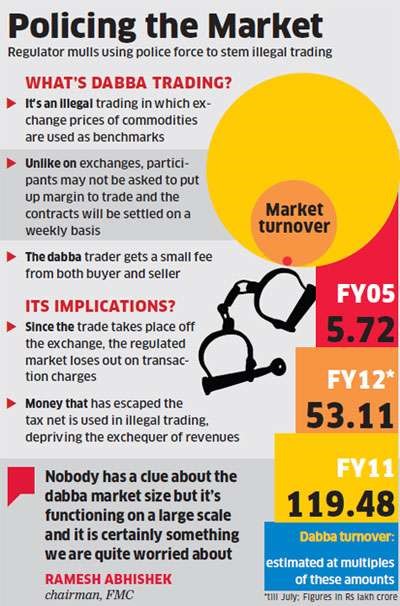Free Courses Sale ends Soon, Get It Now


Free Courses Sale ends Soon, Get It Now



Disclaimer: Copyright infringement not intended.
Context
What is ‘dabba trading’?
Understanding through an example
Motive
Dabba Trading: Key pointers

Concerns
Conclusion
|
PRACTICE QUESTION Q. What do you understand by the term “Dabba Trading”? What are the concerns associated with Dabba Trading in India? Critically examine. |
© 2024 iasgyan. All right reserved